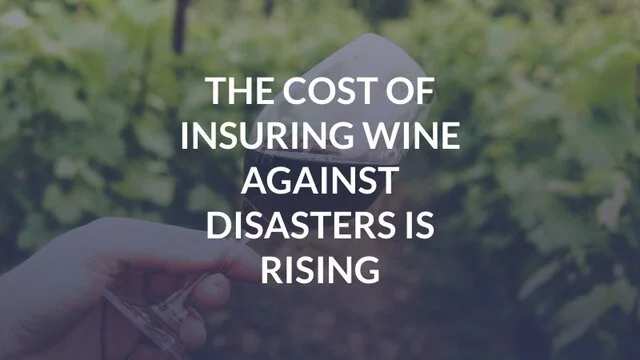
Wineries and vineyards are increasingly facing threats from wildfires, extreme weather events, and supply chain breakdowns. In response, many are turning to insurance to protect their business, but coverage is becoming more expensive and harder to secure. But higher premiums don’t always mean better protection, and when losses occur, insurance alone may not cover the full extent of damages.
At Singleton Schreiber, our wildfire attorneys represent wineries, vineyard owners, and agricultural businesses seeking compensation for fire-related losses, crop damage, and business interruption. If your business has suffered due to a disaster or inadequate insurance coverage, legal remedies may be available.
Why Wine Insurance Costs Are Climbing
Natural disasters that were once considered rare, like wildfires, spring freezes, and extreme weather, are now occurring more regularly. From the 2020 Glass Fire in Napa to recent frosts in Oregon and New York vineyards, the wine industry is facing greater risks than ever before.
Insurance companies are responding by raising premiums or pulling coverage entirely from high-risk regions. In Napa and Sonoma counties, for example, concentrated risk has led some insurers to exit the market, forcing wineries to accept higher rates or reduced coverage.
Even when policies are in place, coverage gaps often emerge, especially when it comes to lost crops, smoke-tainted wine, or supply chain delays. These costs can quickly reach into the millions for wineries with multiple vintages stored in barrels, bottles, or tanks.
Common Insurance Challenges in the Wine Industry
Wineries and grape growers rely on a range of insurance types, including:
- Crop insurance for damage from fire, frost, and hail
- Property insurance for tanks, bottles, and facilities
- Business interruption insurance for lost revenue after closures
- Cargo and shipping insurance or losses in transit
But coverage is often limited by outdated valuations or strict claim requirements. Many policies are based on average market values, which don’t reflect the true cost of high-end grapes or estate-grown wines.
For example, crop insurance may not reflect the true value of premium grapes, and claims can be denied if growers can’t prove they took mitigation steps. Claims may also be delayed or underpaid, leaving wine businesses with unpaid expenses or damaged inventory they can’t sell.
Wineries may also face uninsured losses tied to smoke taint, inventory spoilage, or damage to brand reputation. Even with a payout, rebuilding or replanting can take years, and lost shelf space or distributor contacts may never return.
Legal Options When Insurance Isn’t Enough
Insurance is only one piece of financial protection. When a disaster is caused or worsened by a third party, such as a negligent utility company, shipping carrier, or insurance provider, legal action may be necessary to recover full compensation.
Singleton Schreiber helps wine businesses pursue claims for:
- Crop loss due to smoke, fire, or weather events
- Damage to facilities, wine stock, or equipment
- Business interruption and lost future income
- Bad-faith insurance denials or delays
- Losses from shipping errors, cargo theft, or temperature damage
We also represent clients in disputes over denied or undervalued claims, including smoke taint exclusions or improper claim handling by insurers. Our legal team works with agricultural experts, appraisers, and forensic accountants to calculate the full extent of your loss.
We investigate the cause of your losses, assess coverage gaps, and hold responsible parties accountable.
Legal Support for Wineries and Vineyards After a Disaster
If your vineyard, winery, or wine business suffered losses from wildfire, weather, or shipping disruption, you don’t have to navigate the financial aftermath alone. Contact Singleton Schreiber for a free consultation.
- Partner
Dan Fruchter is a partner at Singleton Schreiber’s Spokane office, focused on consumer and financial fraud, environmental protection, personal injury, fire litigation, public entity, and civil rights law. Mr. Fruchter brings ...
- Partner
Michelle Meyers is a Partner at Singleton Schreiber and is a member of our Fire Litigation, Public Entity Law, Personal Injury and Wrongful Death, Insurance Recovery and Bad Faith practice groups. A seasoned trial and policy holder ...


